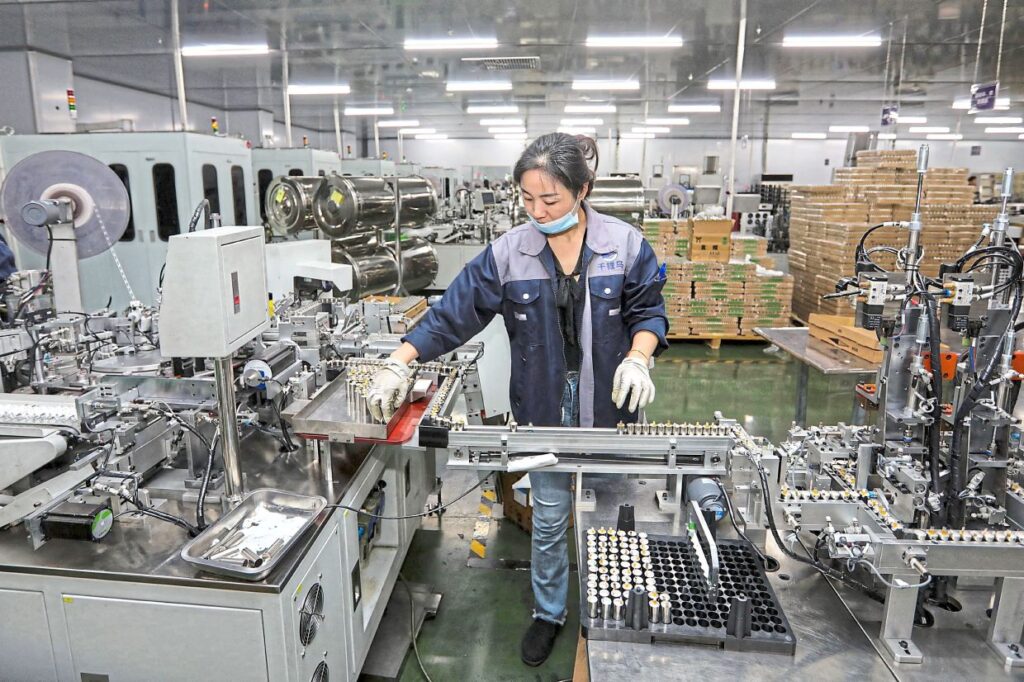BEIJING: China’s manufacturing activity expanded at the fastest pace in a year in March, an official factory survey showed on Monday, in a positive sign for the world’s second-largest economy as it deals with an escalating U.S. trade war.
The official purchasing managers’ index (PMI) was 50.5 in March versus 50.2 in February, above the 50-mark separating growth from contraction, and matching a median forecast of 50.5 in a Reuters poll. It was the highest PMI reading since March 2024.
The non-manufacturing PMI, which includes services and construction, accelerated to 50.8 from 50.4.
China has kept its economic target for this year unchanged at “around 5%”, despite new tariffs from U.S. President Donald Trump, which threaten to hit the massive export sector, a key driver for the $18 trillion economy.
The government has pledged more fiscal stimulus, increased debt issuance, further monetary easing and put even greater emphasis on boosting domestic demand to cushion the impact of the trade war.
China’s economy has had a bumpy start this year, with improving retail sales offset by persistent deflationary pressures and rising unemployment.
Trump has imposed a cumulative 20% tariff on all Chinese imports since returning to the White House in January, accusing Beijing of not doing enough to curb the flow of chemicals used to make the deadly drug fentanyl.
The U.S. president is also preparing to announce “reciprocal” tariffs on Wednesday, a move designed to address trade imbalances, which could hit Chinese goods with additional levies.
Trying to assuage concerns among foreign enterprises over China’s economy amid Trump’s tariff threats, Chinese President Xi Jinping gathered a group of multinational CEOs last week and urged them to protect global industry and supply chains.
At a key business forum earlier this month in Beijing, Chinese Premier Li Qiang urged countries to open their markets to combat “rising instability and uncertainty.”
Beijing is also doubling down on its “cash for clunkers” consumer goods trade-in programme to encourage households to open up their wallets.
Analysts polled by Reuters forecast the private sector Caixin PMI to have risen to 51.1. The data will be released on April 1. – Reuters


